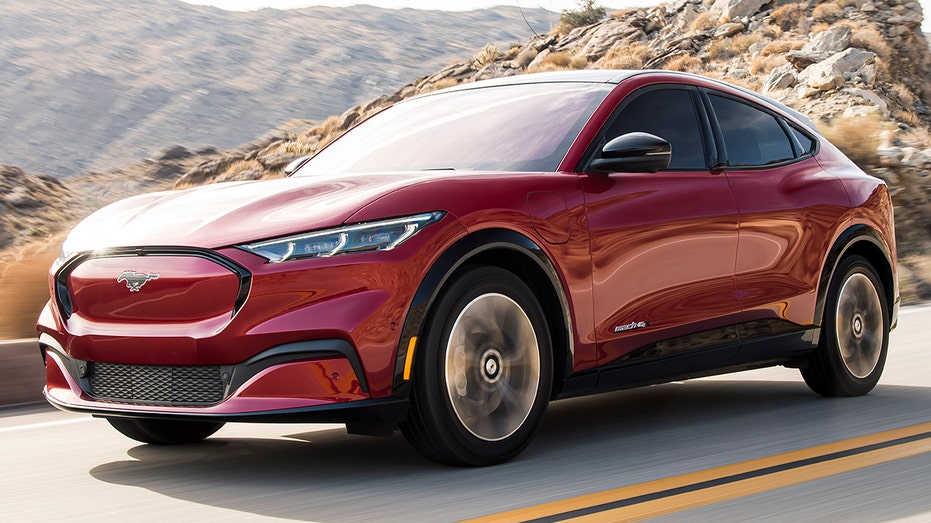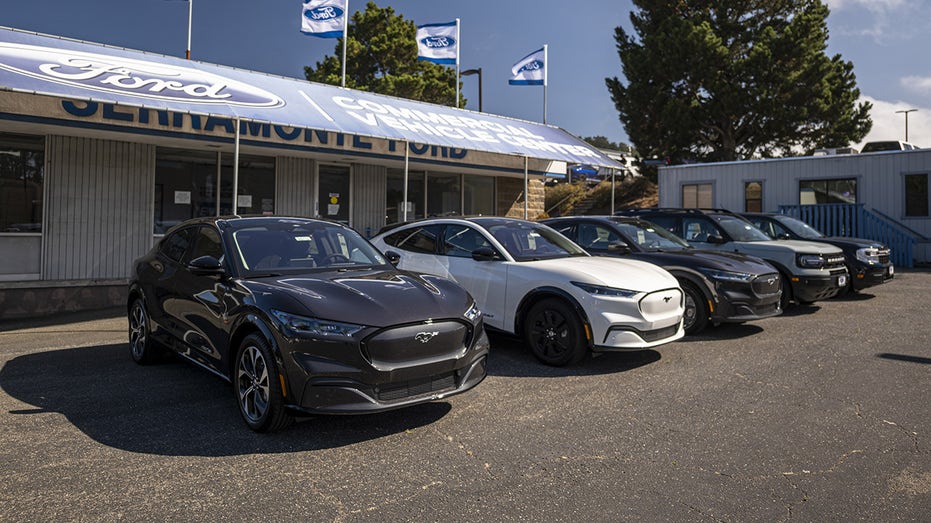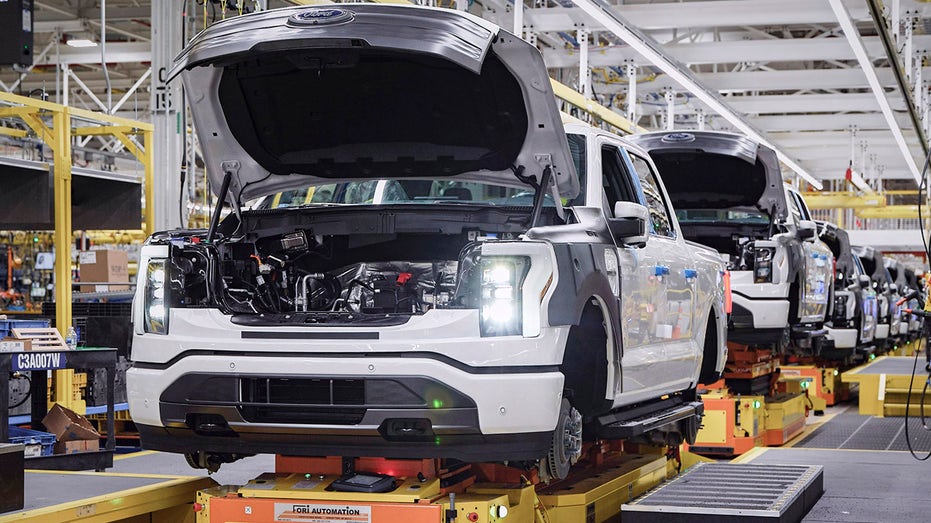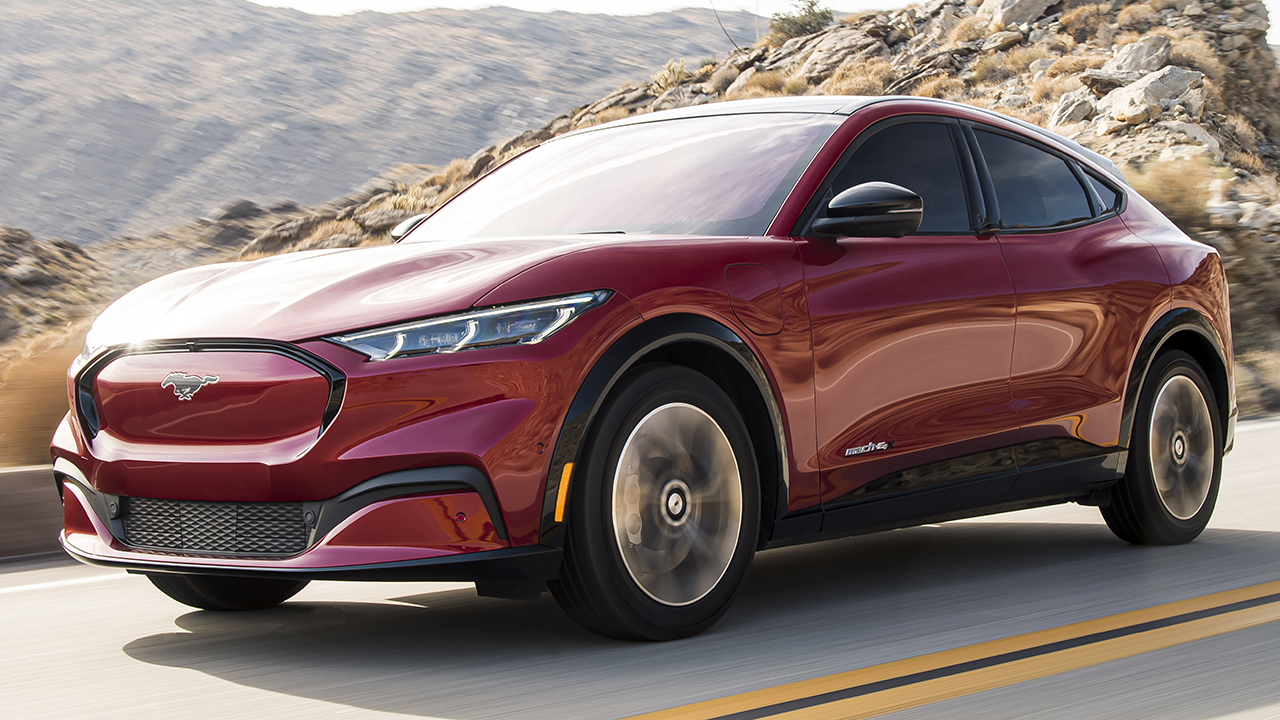Ford hiking electric Mustang Mach-E prices by up to $8,100
Follows F-150 Lightning's price increase
The Ford Mustang Mach-E will be getting a lot more expensive when the order books reopen on Tuesday, Aug. 30.
Ford has released pricing for the 2023 lineup, which includes price increases ranging from $3,000 to $8,100.
The lowest-priced Select now starts at $48,195, which is up from $44,995 and includes a $1,300 delivery fee that's $200 more than last year.
The recently introduced top-of-the-line Mustang Mach-E GT sees a $7,900 bump to $71,195, while the all-wheel-drive California Route 1 gets an $8,100 increase to $65,195.
FORD LAYING OFF 3,000 EMPLOYEES TO CUT COSTS, PAY FOR EV TRANSITION

Ford has sold over 22,000 Mustang Mach-E SUVs so far in 2022. (Ford / Fox News)
Some new standard features have been added to the vehicles, including the Co-Pilot360 package of electronic driver aids with adaptive cruise control and lane-keeping assist.
"Adding Ford Co-Pilot360 Driver Assist Technology to the entire Mustang Mach-E lineup gives more customers access to services like BlueCruise hands-free driving and future ADAS services through Ford Power-Up software updates," Marin Gjaja, chief customer officer for Ford's Model e electric car division, told Automotive News.

The Mustang Mach-E will now start at $48,195. (David Paul Morris/Bloomberg via Getty Images / Getty Images)
"We're sharing these changes ahead of re-opening order banks on Tuesday so customers can understand the feature and pricing adjustments around ordering a Mustang Mach-E."
AVERAGE NEW CAR PRICES SET TO HIT RECORD $46,259 IN AUGUST
Earlier in August, Ford raised prices on the F-150 Lightning electric pickup, citing increased materials and supply chain costs.

The Ford F-150 Lightning has also received significant price increases. (Ford / Fox News)
Ford sold 22,645 Mustang Mach-Es through August. The Mexican-built SUV is one of the few electric vehicles that qualify for the new $7,500 federal tax credit, which requires them to be built in North America.
The company on Thursday also released a statement in support of California's move to ban the sale of new cars without plug-in electric drivetrain technology.
GET FOX BUSINESS ON THE GO BY CLICKING HERE
"At Ford, combating climate change is a strategic priority, and we’re proud of our partnership with California for stronger vehicle emissions standards, forged during a time when climate action was under attack. We’re committed to building a zero-emissions transportation future that includes everyone, backed by our own investments of more than $50 billion by 2026 in EVs and batteries. The CARB Advanced Clean Cars II rule is a landmark standard that will define clean transportation and set an example for the United States." Bob Holycross, chief sustainability officer at Ford, said.




















